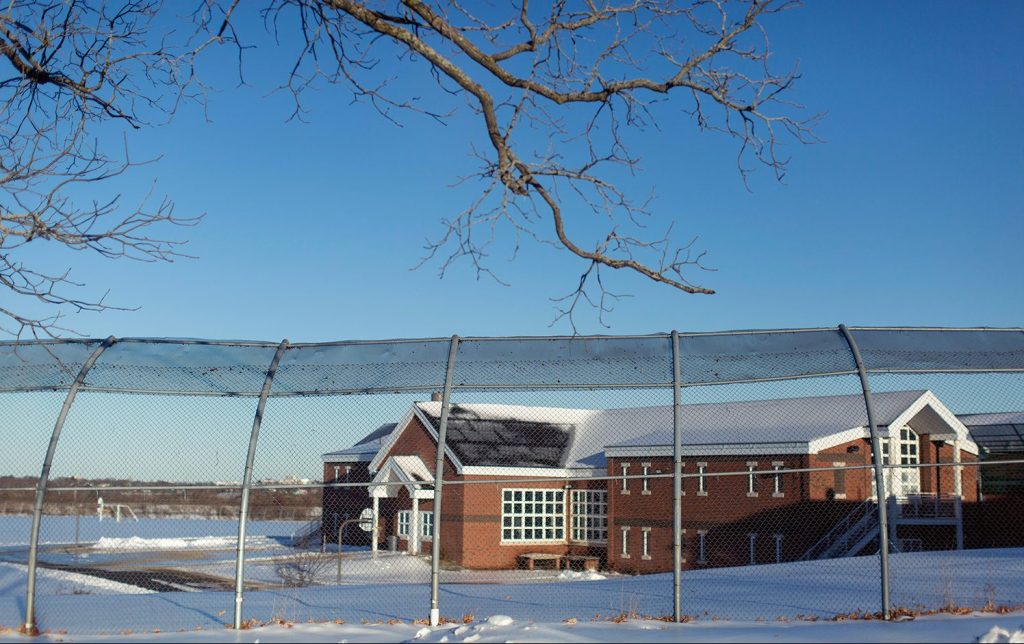What is an 11-year-old with mental illness doing in prison?
The short answer is, because that’s where the system wants him, and the system is fundamentally broken.
While there’s debate over the exact future of Long Creek Youth Development Center, Maine’s only youth prison, there is general agreement that the system is not working, and that youth corrections in Maine should look different than it does now. But that tranformation is slow in coming.
Three reports in the last year have detailed how the youth corrections system is failing Maine kids, and now that failure has another face — one with two missing teeth.
A federal lawsuit filed by the American Civil Liberties Union on Maine alleges that an 11-year-old with severe attention deficit hyperactivity disorder, charged with misdemeanor crimes after acting out at a public swimming pool, was denied treatment during his 39-day stay at Long Creek.
According to the lawsuit, the boy’s condition deteriorated, his behavior escalated, and eventually there was a confrontation and he was slammed by two guards face-first into a metal bed frame, knocking out his front teeth.
The boy was kept from seeing the oral surgeon on staff for six days. His mother was not notified of the injury, and when she arrived at Long Creek for a visit, she was told he fell, the suit alleges.
A few days later, a judge found the boy not competent to stand trial. His charges were dismissed, and he was released from the prison he should have never been sent to in the first place.
The boy’s story is extreme but not unique. Kids whose criminal actions are the result of mental illness, and whose absent or overwhelmed parents cannot handle them at home, are charged with crimes and sent to Long Creek because there is nothing else to do with them. They are entered into a corrections system that is not equipped to deal with them, and in fact makes things worse.
A better system would take the money being used on youth incarceration and spend it instead on community-based programs.
A better system would keep the boy at home, or at a hospital, and provide him and his family with the support he needs to get well.
A better system would recognize that no sick child should end the day locked in a room surrounded by people who see his illness as criminal.
The Department of Corrections says it is working toward such a system. While the department has resisted calls to close Long Creek, the number of inmates has fallen to roughly 65, down from more than 300 in 1997 and more than 180 just five years ago.
Eventually, Commissioner Joseph Fitzpatrick has said, Long Creek will house few inmates, as those with mental health issues will be moved to psychiatric facilities.
But the state has released no details on such a plan, and the casualities are mounting.
The reports critical of Long Creek — by the state’s Juvenile Justice Advisory Group, the prison’s Board of Visitors, and a group of Maine-based researchers — followed the 2016 suicide of 16-year-old Charles Maisie Knowles of Vassalboro, a transgender boy who was in Long Creek awaiting trial on a felony arson charge.
In its review of Knowles’ death, the Board of Visitors said Long Creek “is not medically equipped to deal with the delicate needs of these vulnerable youth.” Without changes, the report said, more harm will come to inmates.
Just a few months later, the 11-year-old boy was being locked in one of Long Creek’s rooms.
Copy the Story LinkSend questions/comments to the editors.



Success. Please wait for the page to reload. If the page does not reload within 5 seconds, please refresh the page.
Enter your email and password to access comments.
Hi, to comment on stories you must . This profile is in addition to your subscription and website login.
Already have a commenting profile? .
Invalid username/password.
Please check your email to confirm and complete your registration.
Only subscribers are eligible to post comments. Please subscribe or login first for digital access. Here’s why.
Use the form below to reset your password. When you've submitted your account email, we will send an email with a reset code.